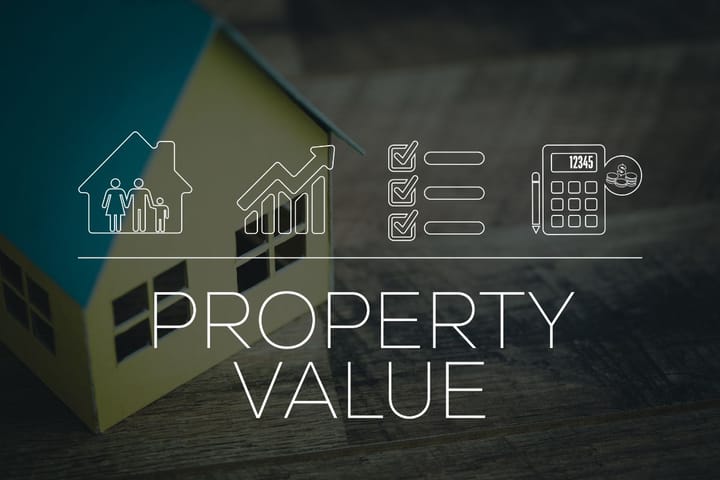Exploring Flexible Financial Solutions for Homeowners
Managing homeownership finances requires smart decisions. This blog covers flexible strategies to fund upgrades, purchases, or debt consolidation effectively.

Handling the financial responsibilities of homeownership calls for deliberate and thoughtful decision-making. Homeowners often need extra capital for home upgrades, significant purchases, or to consolidate debt. This blog explores a range of flexible financial strategies to aid you in making a choice tailored to your specific circumstances.
Fully grasping these options will empower you to utilize your home as a financial tool while maintaining your financial well-being for the future.
Leveraging Home Equity: Loans and Lines of Credit
For property owners, leveraging home equity is a major financial maneuver. The primary methods for this are home equity loans and home equity lines of credit (HELOCs). Grasping the unique features and benefits of each can guide your choice effectively.
Home Equity Loans
Home equity loans offer homeowners a method to secure funding by leveraging the equity in their homes. This type of credit provides a lump sum, repaid over a fixed period with consistent monthly payments. Opting for a home equity loan through a credit union might be especially advantageous due to competitive rates and customizable terms that cater to individual financial situations.
It's crucial to evaluate your ability to adhere to the payment plan and assess how a credit union home equity loan fits into your broader financial objectives. Also, selecting the right provider is essential, as terms, fees, and customer service can vary significantly among lenders. Consider the impact of such borrowing on your home equity, as it might restrict your financial flexibility or your ability to sell your property in the future.
For homeowners looking into this option, understanding these conditions and ensuring they align with your financial strategy is key. Always review the specific details and benefits provided directly on the provider’s official website or contact them for the most current information.
Home Equity Lines of Credit
A HELOC offers a versatile way to tap into funds as needed, with credit limits based on your home's equity. During the initial draw period, you're responsible for interest payments on the sum utilized. This feature makes HELOCs suitable for staggered projects or cyclical expenses.
It is essential to prepare for the repayment phase, which requires payments on both the principal and interest, to prevent financial difficulties. Before securing a HELOC, it's important to scrutinize the agreement, paying particular attention to the interest rate setup, as fluctuating rates might increase payments amid economic shifts.
Establishing a clear plan for spending the funds can also help avoid excessive borrowing and subsequent financial strain. By borrowing against home equity through loans or credit lines, homeowners can acquire funds while still owning their property - though it is essential to assess these options against long-term goals before making your final decision.
Refinancing Your Mortgage
Refinancing involves replacing an existing mortgage with one with improved terms, usually decreasing monthly outlays or increasing interest rates, speeding home repayment, or providing cash-out refinancing to cover education or healthcare costs. Before any consideration of refinancing, assessing all fees and the broader financial effects is crucial before moving forward. It is wise to also calculate a breakeven point--this analysis helps decide if refinancing provides an economical choice in your circumstances.
Reverse Mortgages Explained
Reverse mortgages, designed specifically to serve seniors 62 years or older, provide access to home equity without monthly repayments. Retirement loans provide reliable income to retirees, yet require them to keep up with property taxes, insurance costs, and upkeep expenses.
Care must be taken when selecting any financial path to protect both your estate and eligibility for additional financial aid programs. Assess various reverse mortgage types, such as Home Equity Conversion Mortgages (HECMs), to find one that fits best into your financial situation and pay close attention to fees and accruing interest; these factors could significantly diminish home equity over time.
Government-Backed Loan Programs
Government-supported loan initiatives such as FHA, VA, and USDA loans deliver distinct advantages for qualifying homeowners. FHA loans feature reduced down payments and more lenient eligibility criteria.
VA loans cater exclusively to veterans and eliminate the need for a down payment, while USDA loans provide full financing solutions to homebuyers in rural settings. It's essential to fully grasp the qualifications and perks associated with each type of loan to make an informed decision that aligns with your requirements.
These loan programs usually offer lower interest rates and additional safeguards, rendering them favorable for borrowers with modest financial means. Invest time in researching local lenders and agencies proficient in these loans to secure optimal support and conditions.
Alternative Financing Options
When standard methods are inadequate, options such as personal loans or peer-to-peer lending should be considered. These alternatives can offer quicker fund access without depending on home equity, though they typically involve higher interest rates and shorter repayment periods. It's crucial to investigate lenders and agreements exhaustively to steer clear of disadvantageous conditions or exploitative tactics.
View these methods as temporary fixes rather than enduring strategies, due to the increased economic hazards they present. Before moving forward, scrutinize the total repayment costs against other solutions to confirm compatibility with your financial capacity and objectives.
Conclusion
Selecting the appropriate financial strategy hinges on your objectives, present circumstances, and future needs. Whether capitalizing on home equity, refinancing, or considering government-backed loans, understanding the consequences of each alternative is essential. Seeking advice from a financial advisor can help confirm that your selection is in harmony with your economic stability and upcoming aims. By adopting a proactive stance and meticulously assessing your choices, you are able to address immediate economic issues while safeguarding your financial well-being for the future.




Comments ()